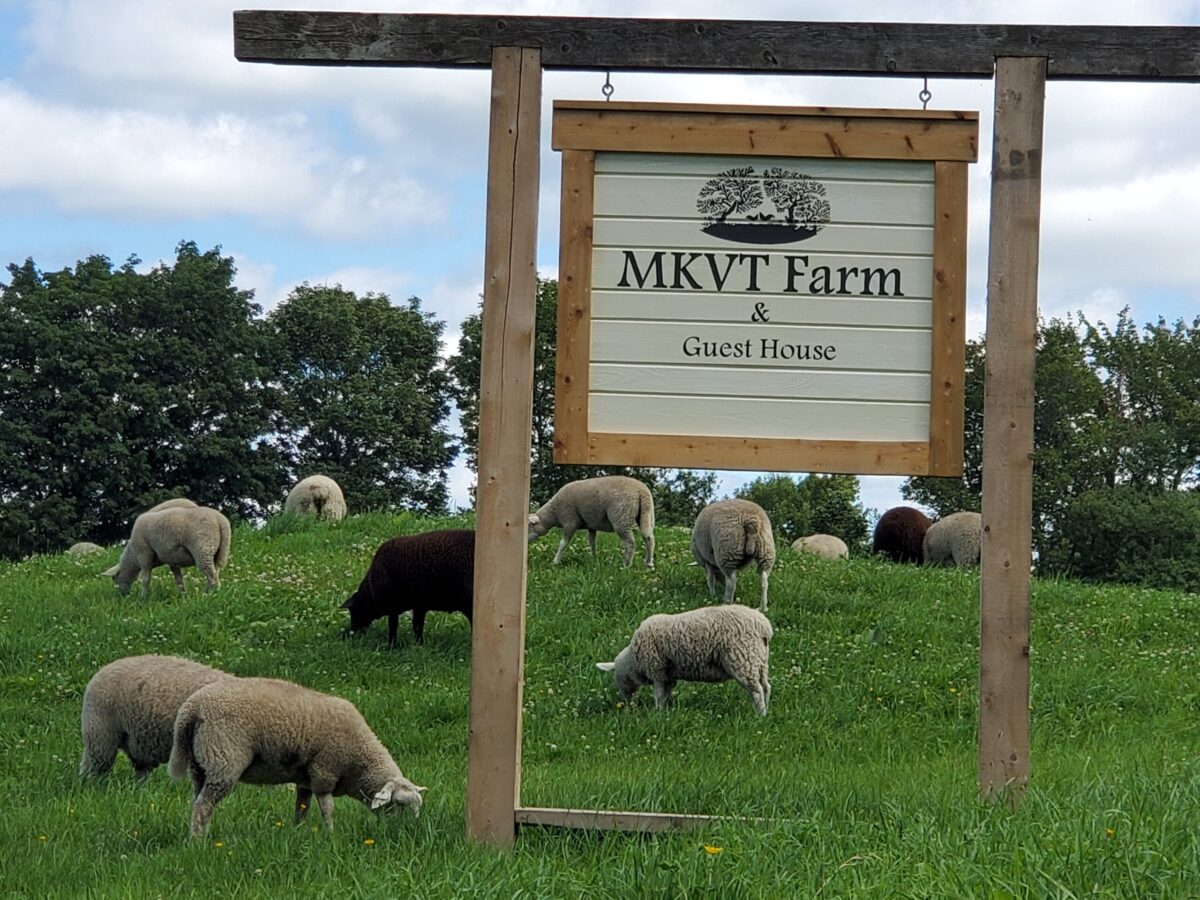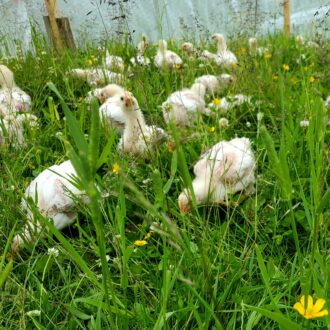A recent Northeast SARE Farmer Grant project demonstrated how soil amendments made from typically unusable parts of fish can improve the quality of harvested meat by working from the literal ground up.
In FNE22-027, “Enhancing Health Benefits of Pasture Raised Lamb, Pork and Chicken Utilizing Organic Fish Hydrolysate and Compost Supplementation”, Karen Rodgers of MKVT Farm in Vermont tested the effectiveness of using hydrolysate made from the guts, bones, and cartilage of fish to improve soil health and increase the quality of available forage for pasture-raised animals. Rodgers also tested the impact that the improved forage had on the quality of the lamb, pork, and chicken harvested.
The project demonstrated regional solidarity, as MKVT worked with another Northeast company, Neptune’s Harvest, as the source for their fish hydrolysate.
Rodgers and team documented significant improvements to the Conjugated Linoleic Acid (CLA) levels of the animals who were nourished by forage from hydrolysate-amended soil. CLA is the fatty acid found in the meat and dairy products of animals which are grass-fed rather than grain-fed. The CLA levels in MKVT’s lamb was 300% higher, chicken 50% higher and the pork was over 1000% higher than "premium" supermarket meats. As part of the experiment, MKVT raised a 76-pound lamb, the largest they had ever produced. They also saw the best average weight for all their lambs, 60 pounds – a five pound improvement over the previous year’s average.

They also found that compost in addition to the fish amendment accelerated the growth in microbial populations and the fungal to microbial ratios which makes the soil more fertile, more able to withstand drought or to drain water during wet times, and increases soil’s ability to sequester carbon.
“The value to us in being able to provide a better sustainable way to nourish our soils, animals, family and customers is worth a great deal,” Rodgers said, in the project’s final report. “We will continue down this path as we build something that perhaps the next generation can grasp, enjoy and benefit as much as we have.”
